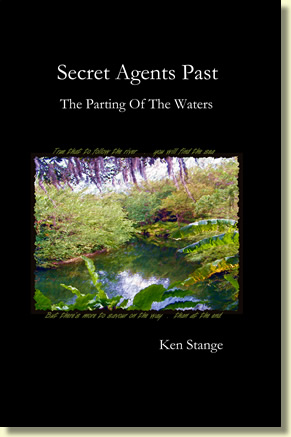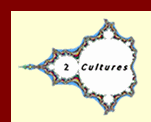|
|
Secret Agents Past: The Parting Of The Waters
Ken Stange
Published by Two Cultures Press (2014)
This is the first in a trilogy on the similarities and the differences in creativity in the arts and in the sciences. While informal in tone and sprinkled with personal anecdotes, it is an in-depth examination of the topic. It specifically looks at the cultural divide between the arts and the sciences that C. P. Snow called "The Two Cultures". By closely examining the similarities and differences in the nature of creativity in these two domains, it resolves the false division of art and science. To accomplish this, the author draws on philosophy and psychology as well as personal experience in both domains.
Two Cultures Press (2014)
ISBN: 978-0939201-0-3
Softcover (6x9 inches) 198 pages.
Signed by author edition: $20 (with free shipping!)

Also available from Amazon.ca and Amazon.com ($13.99 USD) here:
Secret Agents Past: The Parting Of The Waters |

|
| Excerpt |
From the Prologue
We are moved to tears. Transported. By certain passages of music, perhaps a Bach concerto wherein sensuously intertwined strands of melody entangle us in their intricate mathematical interstices and make of us glad captives, happily trapped in a contrapuntal web. Or by an old and—more often than not—saccharine pop tune that triggers vivid memories of our first exploration of the slopes and planes of a young lover's body. By the glistening perfection of an autumnal forest after rain, where the late afternoon light invents a new colour spectrum to display on its canvas of dappled leaves. Or by the sight of a patch of dirty weeds which suddenly brings back the empty lot where as children we imagined ourselves daring, pith helmeted jungle explorers. Or by the dramatic pathos of a prideful old man orchestrating his own madness by not recognising his daughter, Cornelia, as being his one offspring loving enough to be honest. Or by the silly lines of a bad poem we loved and memorized in grade six before we learned, like King Lear did too late, to distinguish gush from gumption.
|
We are moved, moved to the highest emotional plane, not so often by life events, by visceral satisfactions or physical suffering, but rather by the contemplation of the world about us, by deeply apprehending both Nature's and our creations: perceptions and memories of perceptions.
It is in creation, recreation, and play—that is where the mystery of human emotion resides. It is from the closing of the eyes that the medieval mystery plays took their name; it is from the opening of the eyes that the play of art and science invoke our deepest emotions. It is reasonable to assume that we share with many other creatures such fundamental emotions as pleasure in being fed when hungry and pain when being physically injured, but it is hard to imagine any other species experiencing far stronger emotions than these from merely observing. We are special in that we feel most deeply in contemplation of perceptions and the ideas they invoke, not in the response to the vicissitudes of mundane physical experience. The tears we shed when we get hurt are trivial and more easily forgotten than the tears we shed in response to great art. A speck in our eye may make us cry, but Oedipus blinding himself in tragic despair makes us weep.
|
|
|
 All contents Copyright © 2008-2015 Two Cultures Press. All rights reserved.
All contents Copyright © 2008-2015 Two Cultures Press. All rights reserved.
970 Copeland Street, North Bay, Ontario, Canada, P1B 3E4
Email: info@twoculturespress.com
Phone: (705) 472-5127
|
|


